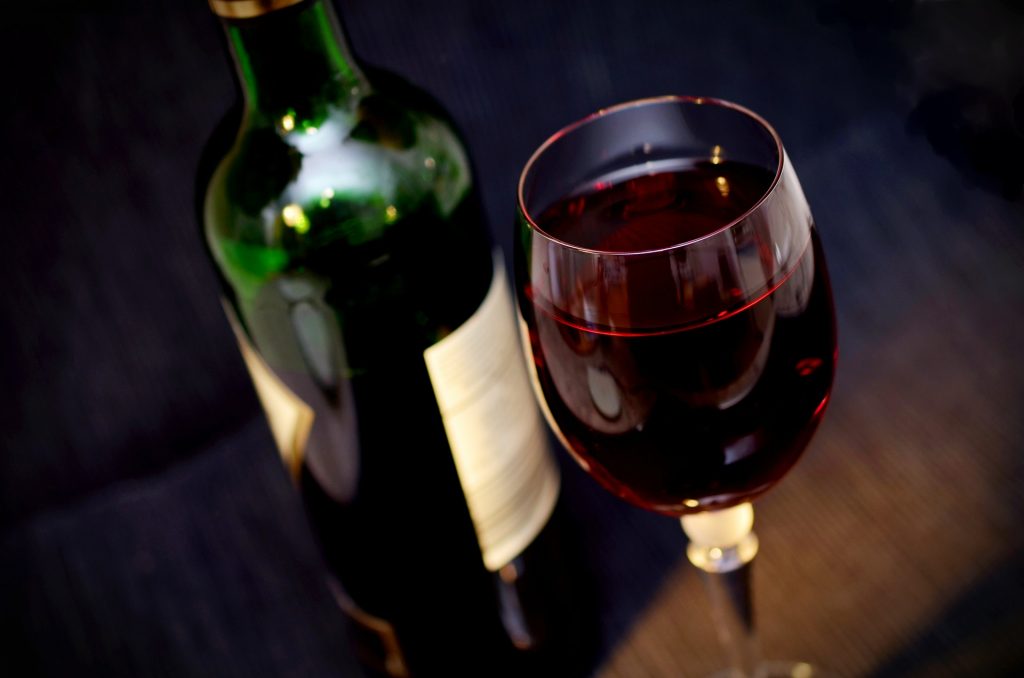Subscribe to the Newsletter
If you are interested in understanding how Traditional Chinese Medicine can improve your life sign up to my newsletter for the latest updates.

Food Retention is what can happen after overfeeding or over-drinking, very often, though not always, too close to trying to go to sleep. The food or drink sits inside you, heating up and blocking the natural flow.
In Chinese medicine, this is the natural flow of Qi. Any kind of blockage or stagnation in the natural flow of Qi leads to health problems, whether you are a baby, teenager, adult: it’s worse when you get old.
For example, read all about Qi Stagnation, from which I guarantee you will have suffered at some point in your life! If you get it for too long and don’t do anything about it, you could end up with IBS. Both Food Retention and Qi Stagnation are syndromes in Chinese medicine, which means they’ve given them a lot of thought!

By the time you are adult, you’ve probably trained yourself to ignore all the natural warning signs your body produces when you keep trying to stuff yourself.
Babies are different. They arrive with a million years of experimentation and gene evolution, all ready to start anew.
What that means is that most ‘healthy’ babies naturally turn away once they’ve eaten or drunk enough.
Also if your baby is growing naturally and is not ill, you probably aren’t overfeeding him. However, please read on, because it certainly is possible to overcome those built-in gene habits, and food retention in babies is something that acupuncturists often see and treat.
Food retention can also occur if you have eaten …
But usually, in adults, it occurs because you just ate too much, or drank too much, especially if too close to going to bed, or to resting.
So it does occur in people even when there are many hours to go before bed. Usually these are people who take little exercise, or whose stomach and intestine capacity is smaller than the average, yet try to keep up with everyone else.
The undigested food sits around inside, unable to move on properly. Eventually it begins to decay.
Then, being a form of Qi unable to move properly (Qi Stagnation), it turns to Heat. That heat thickens and dries, leading to a form of phlegm, hard to shift.
That Heat injures other processes too and dries them out, or forces your digestion to rebel. Then you feel sick.
(What! You don’t believe me when I say food sitting around inside you turns to heat? Have you ever cut grass and put it into a pile? Go back to it the next day and put your hand inside the pile: it will feel warm, showing that the energy trapped in the grass is turning to heat.
With grass, this heat eventually turns the grass into compost which you can use to benefit your garden soil and growing plants.

With a hotbin, the process speeds up. And that’s what happens inside you too, causing food retention and constipation or even diarrhoea.)
If a baby often wakes crying, because parents know more milk will make him heavy and sleepy, they often feed him again, whether he needs it or not.
Doing this too often can cause a traffic jam in his little inside.
Chinese medicine says that because babies in the womb make no use of their lungs or stomach, these organs are undeveloped at birth and to start with often malfunction. They find that many baby problems come down to either lung or digestive problems.
Chinese doctors have had over 3000 years, and an awful lot of babies, to come to this conclusion, so don’t laugh!
In babies, this condition from being overfed to make them sleep occurs because usually they wake from some kind of ‘heat‘. This underlying heat wakes them, so parents feeds them again and again, and the resulting traffic jam increases the Heat which sours the milk inside them, giving rise to the symptoms described below.
If, passing through a natural developmental phase, the baby is also teething, this leads to more heat in the system, drying and thickening.
Food Advice during teething? Avoid foods that are heating, drying or thickening, such as red meat, rich dairy foods like cheese, and sweet food. For more examples check Hot Foods. Just during teething, think of cooling foods, like yogurt.
Of course, not only babies get food retention (ie accumulation of food)! So do children and teenagers, who often get it because they experiment with new food tastes and trends, over-heating them and blocking them up. Teenagers often get Qi stagnation too, which binds things up in other ways. (I’m glad I’m not a teenager any more!)
In fact, most acupuncturists check for it automatically whenever they see babies and young children. That’s because the syndrome is such a big factor in many diseases like constipation, intestinal parasites, abdominal pain, vomiting, diarrhoea, and even cough and asthma.
The other main syndrome affecting the digestion in babies and children is Spleen and Stomach deficiency.
By the way – I’ve had children! I know it’s not always easy to get the right feeding pattern for your child. I suggest, to assist with sanity, you read this book!
NB You can be woken at night by much milder symptoms of food retention than those listed below. For example, you might be a thin individual who eats a good but rather-too-heating-type meal some hours before going to bed.
You might even have a good bowel movement before climbing into bed. But you still wake up, typically after 3 or 4 hours,
This is often between 3am and 4.30am, when you wake up feeling a bit warm, but otherwise well.
You lie there wondering why you’re awake. And you can continue to lie there for some time, unable to get back to sleep. During this time, you’ll find yourself thinking about all sorts of problems, relationships, money, debts etc, but they weren’t what woke you.
You probably woke having been dreaming, but it was not necessarily the dream that woke you – although this does happen, and there are all sorts of possible reasons, see below.
No, what woke you may have been food retention. Your inside just couldn’t cope with the heat being generated.
That heat produced too much Yang energy for your Yin resources to cope with, and up you woke! (Too much yang disrupts the normal yin process of sleep. (For more on this, click on sleep problems.)

Note: normally overfeeding like this makes you hot. Having a bowel movement cools you down. So if you live in a cold country and are not well insulated, keep well covered when out of bed. After vomiting or passing your stool, if you feel cold, steep a slice of ginger root in boiling water for a few minutes before drinking or sipping the liquid.
There are other syndromes in Chinese medicine why you might wake up from sleep in the middle of the night, including:
Of course, you can have a combination of syndromes. For example, it is common to have the syndrome described on this page, Food Retention, together with Heart and Spleen Blood deficiency.
If you’ve read through this page, you’ll have noticed many references to Qi Stagnation and what to do about it.
Exercise is the number ONE method for moving Qi, (it should preferably get you out of breath, which stimulates your diaphragm which massages your intestines) but there are other ways, and one which gently exercises your insides without getting you out of breath is yoga.
For yoga poses/asanas/poses that can help your digestion and may reduce your tendency to constipation, here’s a good page to visit!:
https://www.jenreviews.com/yoga-for-constipation/
However, doing a pose just once won’t solve long-term constipation! You need to practise the asanas regularly.
Return from Food Retention to Insomnia.
As mentioned, food retention is a kind of Qi Stagnation. If you have enjoyed reading about food retention here, you may like to read one of the author’s books, such as the one on Qi Stagnation itself.
Qi Stagnation happens to everyone from time to time. It’s part of life, and does little harm, especially if you know how to deal with it – which is what the book below is about: I’m told it’s easy to read.
If Qi Stagnation goes on for too long, then you may have a problem. The book describes how it could make you ill.
But all is not lost! For nearly everyone, there are ways forward.
Even when you have to put up with Qi stagnation in one part of your life, learning how to take the ‘sting’ out of it can lead you down new pathways and keep you enjoyably sane!
Knowing that, you’ll often find that the stagnating Qi – which is, after all, your own trapped energy – becomes a huge resource that you can use to move on creatively.

Stay in Touch!
No spam, only notifications about new articles and updates.

Book a Video consultation if you want to know more about your symptoms

Why You get Nervous Stomach Anxiety and How to Handle It. Acupuncture has great ways to help.
Subscribe to the Newsletter
If you are interested in understanding how Traditional Chinese Medicine can improve your life sign up to my newsletter for the latest updates.
Subscribe to the Newsletter
If you are interested in understanding how Traditional Chinese Medicine can improve your life sign up to my newsletter for the latest updates.